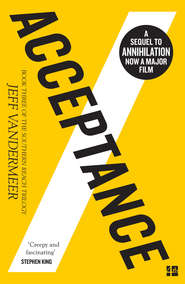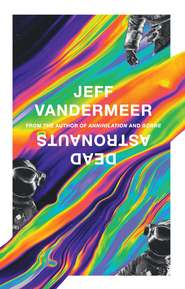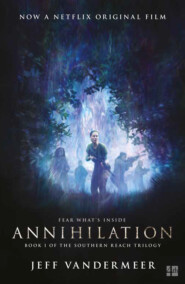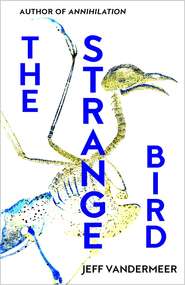По всем вопросам обращайтесь на: info@litportal.ru
(©) 2003-2024.
✖
Borne
Автор
Год написания книги
2018
Настройки чтения
Размер шрифта
Высота строк
Поля
“Because it is concealing its capabilities from you. Already. You have no idea what it might do next. You’re telling me it’s organized and possibly as intelligent as a dog, and we still don’t know its purpose.”
“You said Borne didn’t have to have a purpose.”
“I might have been wrong. Give it to me. I can find out what it is.”
That made me shudder. “Only by taking Borne apart.”
“Maybe. Yes, of course. I don’t have any sophisticated equipment here. I don’t have the time or the ability for anything noninvasive.” The Magician encroached, the supplies wouldn’t last forever—the rhythm that ruled our lives.
To Wick, Borne was just another variable, something he needed to control to manage his own stress. I understood that, but perhaps the lie created by life inside the Balcony Cliffs was that at some point we might think beyond the next day or the next week. That was the sliver of doubt that had crept into me along with the laughter at Borne’s antics.
On impulse, I hugged Wick, held him close, even though he tried to pull away. This was business, this was survival, that resistance told me, and I shouldn’t mix our personal relationship with business. But I couldn’t help it.
And I still couldn’t give him Borne—not out of pity or concern or anything else false. And because I couldn’t give him Borne, I stopped talking about Borne with him. When he asked about Borne, I kept my answers brief and casual. He’s fine. He’s really nothing more than some kind of vegetable. A potted plant that walks. Wick would look at me like he saw right through me, but he didn’t take Borne away from me.
It was all a test as to whether trust could still exist between us, and every time I extended that trust a little further I expected it would be unable to take the weight, or the pressure of my weight on it, and snap.
WHAT I FOUND IN WICK’S APARTMENT
Trust, though, required certain betrayals. Long before the arrival of Borne, I had searched Wick’s quarters while he was out selling his drugs. I assumed he had done the same to me, but who knew? This aspect of trust you don’t talk about with the recipient.
My betrayal required skill—to un-puzzle locks, to bypass traps, to snuff optics—but in the end it wasn’t worth the effort. Wick’s three rooms did not reveal much about the man. The sum of his existence in that cramped space came to so very little. No family photographs or portraits, few personal items.
Perhaps, I thought, he chose to live so small to keep whatever secrets he hid out of his mind? I imagined that somewhere buried deep in our Balcony Cliffs midden lay a warehouse full of artifacts Wick kept locked away so he could not be compromised by them. But if that was true, I never found that place.
I had only the stark evidence at hand, coerced gently from a desk drawer with a little creative lock-picking: a diagram of a fish curled inside the outer tube of a broken telescope and a metal box filled with tiny vermilion nautilus shells, curled up and dry.
I pocketed one nautilus shell for later, examined the fish diagram. I held the diagram unfolded beneath the dim light of the fireflies Wick had embedded in the ceiling. I knew it was a relic from Wick’s final project at the Company, the one he would only talk about when he was drunk. Certainly nothing like this had ever arisen from Wick’s makeshift swimming-pool vat. Yet.
Whatever purpose the schematic had served, in the end it depicted an ugly fish, like a huge grouper or carp. A sideways, cutaway view, with lines radiating out from the brain, but also other parts, with numbers and random letters at the end of the spikes. That the fish had a wistful face of a woman with pale skin and blue eyes did not help, the effect ghoulish. It made me wary, as if some mad scientist had decided to make real a figurehead from an old sailing ship.
Wariness was not the term for the scrawling on the back. The more recent notes around the edges I could tell were in Wick’s handwriting, and amounted to nostalgia: little nudges about how he might re-create the fish project, which had clearly petered out over time. But there was also a second writer, dominating the center space, with what looked like older marks, whose clear passion had increased into madness. The handwriting devolved into sweeping or stabbing marks, less and less legible, and then became gouged dark clouds of scribbles. The damage obscured meaning or told me too much. And what words that did peer through the mess were less than useful. Near the end of legibility, the scrawled words, No more company.
I put the empty telescope on the bed, continued my rummaging, worried Wick might catch me in the act. But I quickly realized there was nothing left to riffle through. So some scavenger’s sixth sense made me return to the telescope. A patina like mother-of-pearl covered the surface. I held the telescope up to the firefly lights to admire it.
Then frowned. Something seemed etched on the surface. In fact, up close, the “metal” surface revealed itself as hundreds of tiny hard fish scales forming a pattern so integrated you almost couldn’t see the joins. The surface was still silver shiny, blank, but when I adjusted my grip I discovered that the heat of my fingers had done something to the scales: miniature photographs had formed there. Sneaky, sneaky Wick—although I couldn’t understand the purpose of concealment. The photographs appeared to date from before the city’s ruination, reproduced from old books, but hardly seemed worth keeping secret.
Curious, I made quick work of the telescope’s surface, heating up every scale with my touch, almost as if playing a musical instrument, and then squinting at the results.
Most that weren’t photographs of places now destroyed held a record of impressions of the city. There were lists of places under titles like “Reclaim” and asked/answereds like “How do you kill a building? Do nothing.” Some of it appeared to be the equivalent of microfiche containing a rich history of the city before the Company’s appearance. Other fragments were so microscopic I could only guess at their importance, and wondered how Wick could read them, unless he had some viewing device hidden away, too. None of this seemed like the Wick I knew—who was a loner, who had never mentioned the city as it had existed before the Company, and who seemed to have blocked the hope of any future for the city from his mind.
But I finally understood the need for secrecy when I realized it wasn’t just old photographs and older data. Some scales held monstrous visions of projects never completed that scared me because they made Mord seem mundane. Most important, other scales included a fair number of technical specifications for biotech that I knew Wick had created. None of our enemies needed that information.
Sometimes I wondered whether I would still find Wick fascinating if I uncovered all of his secrets, if I would even know who he was without them.
Back in my apartment, I dropped the nautilus I had stolen into a glass of water and watched as it reanimated, turned a brilliant shade of crimson, began to uncoil as it stared at me, almost defiant, and then disintegrated into nothing as if it had never existed. A disappearing trick. An illusion.
Drinking that elixir of Wick mysteries was impossible for me. I poured the water out, cleaned the glass, tossed the glass onto a pile of dirty old clothes out in the corridor.
¤
My other betrayal was simple: I liked Borne too much. I knew this in my bones, knew I really should give him up. But I also knew it would take something catastrophic for me to do so. The more personality Borne showed, the more I felt attached to him.
Borne also made it easy to keep him because I discovered he would eat just about anything—any crumb, lowly pebble, or scrap of wood. Any worm of any description that came within reach would disappear, never to be seen again. Borne ate a lot of what I would have discarded as trash and in a sense made a compost pile redundant. I think he would’ve eaten a garbage can if he’d been hungry enough.
This ease of life with Borne didn’t stop him from continuing to puzzle me. The most basic and troubling puzzle? Even though so much went into Borne, nothing ever came out of Borne. This fact struck me as absurd, even humorously sinister. It actually made me giggle. No pellets. No dung. No little puddles. Nothing.
Borne was also growing. Yes, growing. I hadn’t wanted to admit it at first, because the idea of growth carried with it the idea of a more radical change, the thought of a child becoming an adult. In how many species did the transformation become radical, the parent so different from the juvenile? So yes, by the end of the first month, although the process had been gradual, I could no longer deny that Borne had tripled in size.
I also could not deny that I was actively hiding Borne from Wick. I no longer let Wick into my apartment, or if I did I made sure to put Borne in the back room, out of sight. I ignored Wick’s attempts to engage me on the subject of Borne as a threat or a creature that required caution.
Since Borne never displayed any kind of threatening behavior, I never thought to take him as a threat. Even calling Borne a “he” began to feel faintly ridiculous as he didn’t exhibit the aggression or self-absorption I expected from most males. Instead, during those early days Borne had become a blank slate on which I had decided to write only useful words.
WHAT WICK HAD TOLD ME ABOUT THE FISH PROJECT AND THE COMPANY
Most of what I knew about the fish project, and the Company, came to me from Wick like fragments of a dark tale I had to put together myself. I couldn’t tell if he held those memories close to ward off the world or to let in something of the world. The Company had come to the city unbidden, when the city was already failing and had no defenses against the intruder. For a time, the Company must have seemed a savior to the city and its people. For a time, the prospect of jobs alone must have been enough. I tried to imagine a young Wick being drawn into the Company, working his way from apprentice to making creatures on his own. Yet the vision always blurred, fell away. I could only ever see him in my imagination, fully formed, Wick as I knew him now.
The fish project had been his undoing, the cause of his being cast out from the Company after many years of service. But although the fish had led to despair, memories of the creature filled him with nostalgia, too.
“A tank of a fish,” Wick told me one night more than a year before I found Borne.
We were on our balcony, looking up at the black sky and ignoring the slap and rush of river poison below. Sometimes, through the protective veil Wick had created to disguise us, we would see others on the balconies to the north, beyond the area we controlled. They looked like manikins or statues, something hopelessly remote, even though we knew they could be dangerous.
It was early in that year, far into a chilly evening. The wind gushed up out of the dark, broke against the balcony stone to bring the faint sting of river smells, and I heard the reassuring hut-hut-hooting of owls and the sounds of stealthy things moving through the underbrush below. I remember thinking that the creatures we couldn’t see had no use for us, went about their business without the need to figure us into their plans. I had no use for me, either. We were both drunk on alcohol minnows and exhausted from a long day of work. I had blood on the bottom of my boots from a scavenging mission gone wrong, but not too wrong.
The sky and its blurred stars, seeking something, wheeled and roved and quivered despite how little I moved as I stared up from my chair. But still I listened to Wick beside me. Still I was awake. My sadness gave me a clarity, a kind of sobriety I hadn’t earned, Wick much drunker.
“A wonderful fish! With a wide and mournful mouth—like you see in certain kinds of dogs. Beautiful and ugly and it moved like a leviathan. On land, no less! It could breathe air. I loved that it could breathe air. I gave it wonderful eyes, too: veined with emerald and gold.”
I had heard this part before, but as much as Wick went on about the fish, the depths of his feelings weren’t about the fish. Not really. As time passed and the stars above began to slow, to reorganize along familiar constellations, most of his emotions were focused on people from the Company: the old friend who had abandoned him, or whom he had abandoned, and the new employee who had betrayed him. The supervisor who had overseen the fish project. All of these people he had let into his life, and who had turned against him. Or had changed. Or had simply been acting to their nature, and Wick had come into focus for them for a time and then drifted out of focus again.
I didn’t know them, and Wick never gave enough context to make me care. But also I couldn’t remember as an adult when I had trusted three people at the same time. That Wick had once trusted so many seemed silly and irresponsible: an old-world indulgence. That he might have trusted them more than he trusted me I didn’t want to think about.
I wondered, too, if Wick’s view of the Company, his willingness to forgive, could ever be reconciled with my own view. To me, the Company was the white engorged tick on the city’s flank, the place that had robbed us of resources and created chaos. The place that, it was rumored, had sent its finished products out by underground tunnels to far-distant places and left us with the dregs at the holding ponds.
Sometimes I met rare older scavengers who would spin me tales of the richness of the city before the Company’s appearance, and their faces would shine with an inner light that almost made me change my mind about memory beetles. Almost. What they told me could not be the whole truth, the same as when we speak of the recently deceased and tell only the good stories. That was the beauty of the Company—how it won no matter what. How it had attached itself to the history of our city, even when it no longer existed here except as a husk, a ghost, or a giant, murderous bear.
“Someone killed it, showed it to me through a camera embedded in one of my spy beetles.” Except, later on Wick said that another person had killed it.
Yet another version: that it had been wounded and lingered on for a time in the holding ponds outside the Company building. In this version, the fish had survived for almost a year—longer than it should have, in part because Wick had fed it. The creature had become a terror of that place: the monster with the human face that rose from the depths to devour. Although the human face was dead almost from the start, nibbled at and gnawed on by lesser creatures in the water, became waterlogged and misshapen in its decay, and no one would have recognized who it once was, nor could the rest of the fish ever recover from the death it carried atop its head.
In a fourth version, Wick hinted that the fish might linger there still, deep under the water. Wick telling versions. Wick hurt. Wick falling back into angst—Wick recounting how he had been forced out of the Company when his fish project was sabotaged, the Company sliding into anarchy, out of contact with its headquarters, and he having to live his life without the protection to which he’d grown accustomed. Turned him into a drug dealer, a survivalist, a man so thin and translucent he wouldn’t have looked out of place in a row of creatures from a cave or the deep ocean.
In my darker moments, when I doubted my own true self and betrayed that self by framing my attraction to Wick as a kind of antidote, I knew that what Wick was really admitting was that in his past he had helped to create a weapon so deadly that not even its extreme beauty could justify its use.
The truth that Wick conveniently left out of most of his memories but was explicit in the notes on the diagram in his apartment: The purpose of his monstrous fish had been to serve as enforcer and crowd control, to instill fear, and perhaps to kill. In some remote place, a government still had had, at the time, the authority or the stability to restore order, was invested in restoring it.
And then, that night on the balcony, for the first and only time, another monster entered Wick’s rambling discourse about the Company. “Mord knew about the fish project. Mord showed me what I was.”










